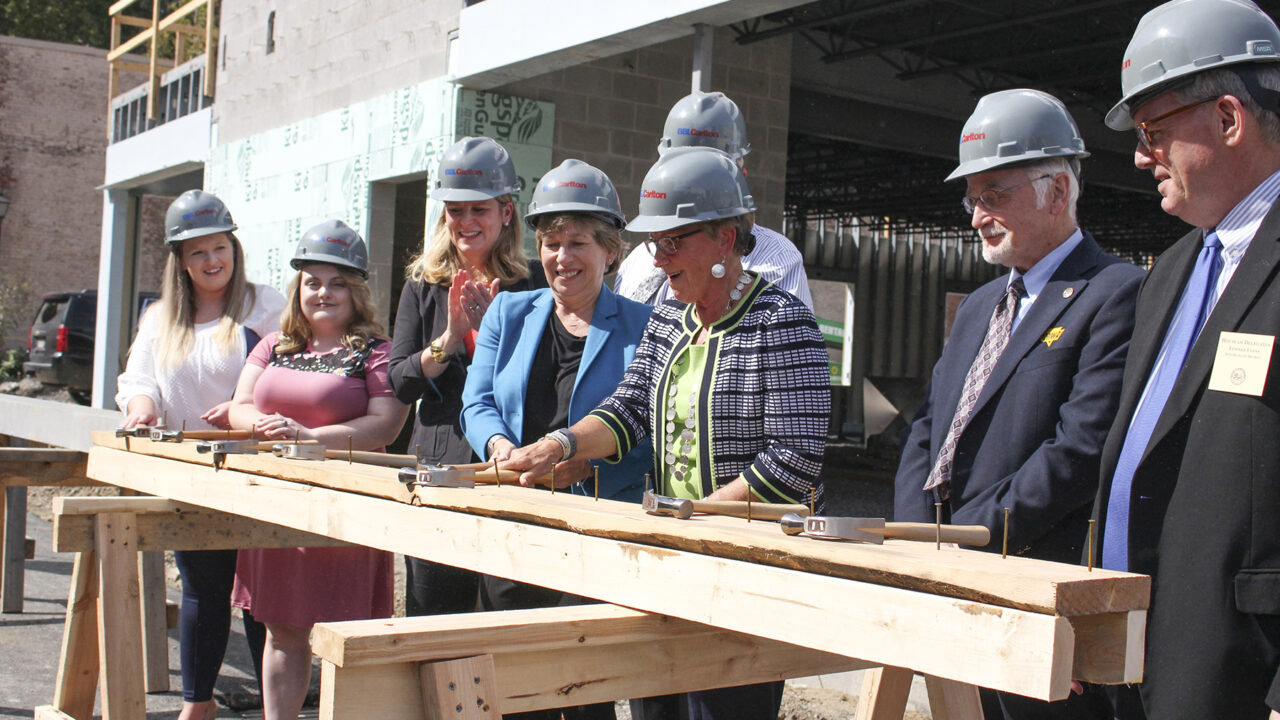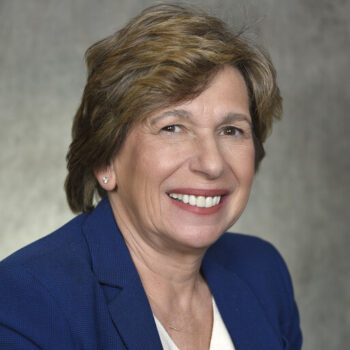By 1960, most of the coal companies had abandoned McDowell County, taking with them the county’s middle-class jobs and leaving behind a landscape of pain and poverty. McDowell County sits deep in the southeastern pocket of West Virginia. The county became a symbol of Appalachian poverty when John F. Kennedy campaigned for president there. In 1961, the county was the first designated location for Kennedy’s pilot food stamp program.
But McDowell County, like much of Appalachia, remained mired in poverty and hopelessness. Over the next half century, despite an enduring sense of pride, the county grappled with sky-high unemployment, academic challenges, health crises, and crushing drug abuse.
The American Federation of Teachers became involved in revitalizing McDowell County because of the severe impact of poverty on the education of the children growing up there. Nearly half of all children did not live with their biological parents. Many had little or no access to medical, mental health, or dental care and had no internet at home. Too many families did not have weather-appropriate clothing, and many had little food to eat. Even after a twelve-year state takeover of the schools, academic outcomes remained stagnant.
With former West Virginia First Lady Gayle Manchin, we realized we had to meet the consequences of poverty head-on if we were going to improve education outcomes for McDowell children and their families. We held several community town hall meetings to hear from community members about what their needs were and what resources would be most helpful. In December 2011, we announced the start of a public-private partnership called Reconnecting McDowell to help the community build a personal, institutional, and programmatic infrastructure for success.
Each of the then-forty partners signed a Covenant of Commitment, agreeing to help improve schools, expand services for students and their families, provide technology, create housing to recruit and retain teachers, and invest in economic development to boost the local economy.
Today, what started as a five-year comprehensive campaign is now nearly a decade old. More than 125 partners, including Fortune 500 companies, foundations, nonprofit organizations, labor unions, the school district, universities and colleges, government agencies and lawmakers, clergy, community groups, and parents, have all signed on to the project.
We have celebrated many tangible improvements over the past decade. Perhaps the most visible is Renaissance Village, a 16-unit apartment building in Welch, built to provide teachers modern housing in close proximity to their school. With no available housing in the county, many teachers live in neighboring counties, requiring long commutes through the hollers. Renaissance Village was the first multistory building constructed in the county in more than fifty years.

We’ve made significant improvements in school services. In 2011, most schools had minimal broadband capability; today, all schools in the county have high-speed internet service. Broadband access is also now available to most households, with reduced prices for homes with school-age children. Both high schools now have on-site health clinics, and students receive regular dental exams and cleanings in schools. Seven out of ten schools have school nurses and social workers, and all schools offer mental health services.
We developed a mentorship program, Broader Horizons, for middle and high school students at risk of dropping out or facing significant difficulties. The program takes students to Charleston, West Virginia, and Washington, DC, to introduce them to the world of higher education and career possibilities. Virtually every participant has gone on to college. At least one has already graduated and is now a McDowell County public school teacher. On the whole, the high school graduation rate has increased from 74 percent in 2010-11 to 92 percent in 2018-19.

Reconnecting McDowell has also made inroads in addressing students’ social and emotional needs.
AFT and First Book provided more than one million books for students, and every school has a “care closet” filled with clothing, blankets, hygiene products, and school supplies. The NFL Players Association and the NFL Foundation donated money to purchase new football equipment, and VH1 Save the Music Foundation provided musical instruments. We established a county Juvenile Drug Court to divert nonviolent young offenders from the traditional juvenile court process (and long sentences) to intensive treatment programs that help them return to school faster.
The most difficult nut to crack has been how we can bring more economic development to an area so ravaged by joblessness. Coal mining never returned. McDowell’s biggest employer, Walmart, closed, leaving hundreds more jobless. We are hoping that Renaissance Village will be a catalyst to bring new small businesses to Welch.
We learned that it is crucial to map the community to confirm existing resources, determine what the community wanted, and build trust with families, local leaders, businesses, and elected officials. We held regular meetings with partners to set doable goals, check on their progress, and develop new benchmarks. We have also found that it’s important to have a consistent, visible presence in the community and to make residents aware of our work and accomplishments, no matter how small. Much of our progress, such as improved school outcomes, has been invisible. Getting the word out has been a challenge. Understandably, the community is anxious to see more tangible progress, like the apartment building. It’s been challenging to balance investing in long-term solutions while delivering immediate improvements to the community.
Perhaps our most important accomplishment has been demonstrating that when the broader community comes together to take on seemingly intransigent issues, we can address the multi-faceted, multi-layered problems facing poverty-stricken areas. Reconnecting McDowell found a way to help break the cycle of chronic poverty in a rural Appalachian corner of America. It can be done anywhere where there are willing partners to fight the good fight.

